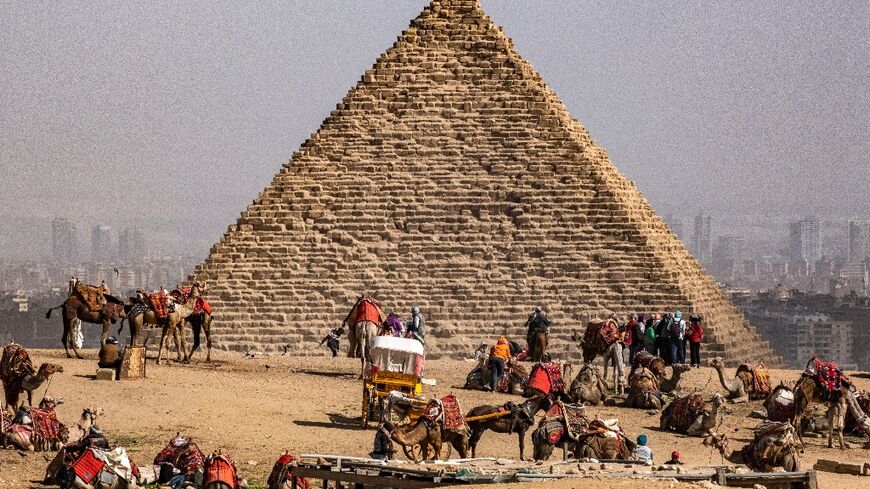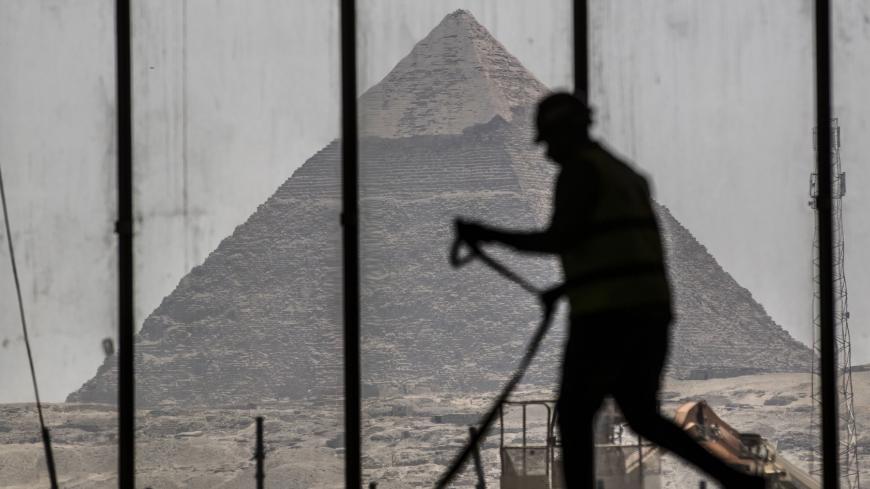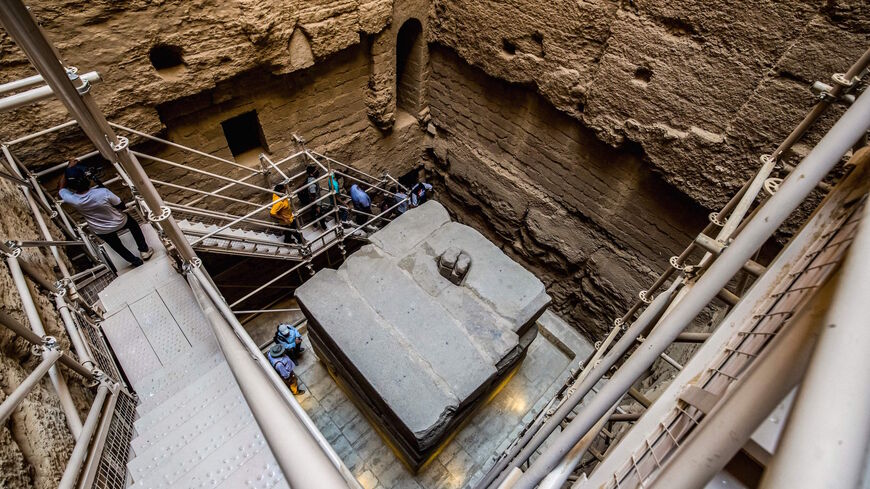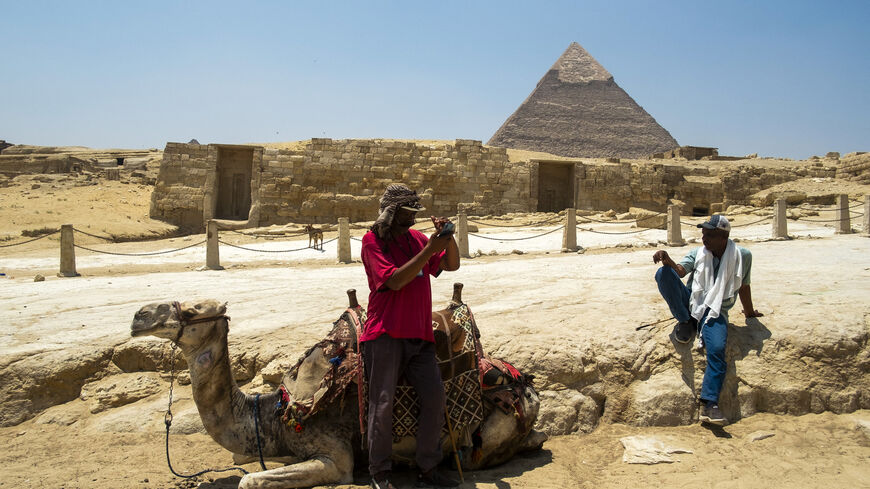Egypt orders review of pyramid restoration after outcry
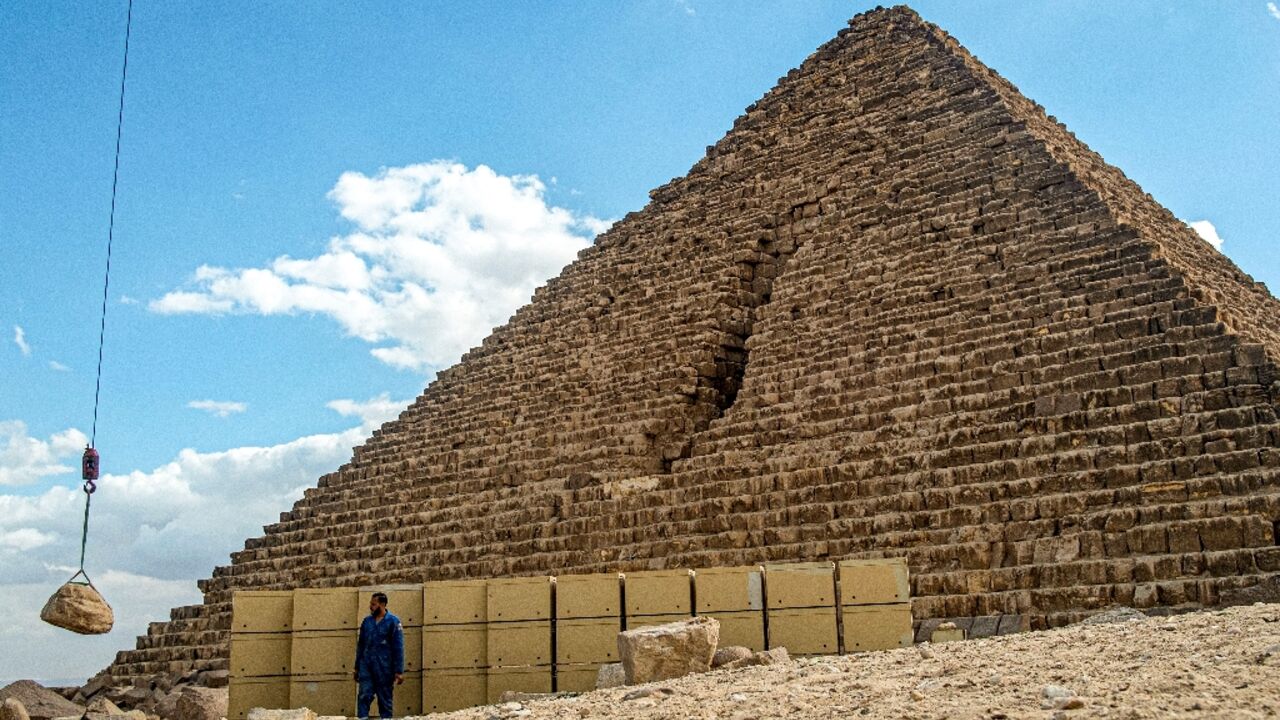
Egypt's antiquities ministry said Saturday it was setting up a committee to review the restoration of Giza's Menkaure Pyramid after a public outcry over the project.
A week ago, the head of Egypt's Supreme Council of Antiquities, Mostafa Waziri, posted a Facebook video showing workers setting blocks of granite on the base of the shortest of the three Giza pyramids.
The footage sparked a storm of criticism from Egyptologists who voiced fears that a wholesale reconstruction of the famed monument was under way, to the detriment of the preservation of its historic fabric.
Trying to calm the debate, in a country where tourism accounts for 10 percent of GDP, the ministry announced that it has set up a "scientific committee chaired by... Zahi Hawass", a well-known Egyptian archaeologist, to review the project.
The committee is made up of "experts in engineering and archaeology" from the Czech Republic, Germany and the United States, as well as Egypt.
The committee's final report will include "the necessary procedures and steps to coordinate with (the UN heritage agency) UNESCO".
"A decision will be made on whether to proceed with the project or not," the ministry said.
At the foot of the Menkaure Pyramid, however, AFP journalists reported that work was already underway last week.
In its original construction, the base of the pyramid was covered with granite, but over time lost part of this covering.
The renovation aims to restore the structure's original style by reconstructing the granite base.
The issue of heritage preservation in Egypt -- home to the Great Pyramid of Giza, the last of the seven wonders of the ancient world that is still visible -- is often the focus of heated debate.
The recent demolition of swathes of Cairo's historic heart drew public campaigns against it, a rarity in a country where political opposition is largely banned.


